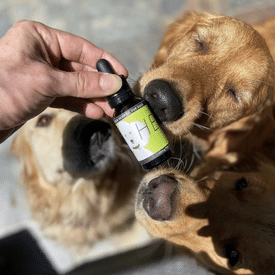In the Press: Pet Age — Retailers Can Enable Pets to Age Well
This article was originally published in Pet Age Magazine.
The golden years: a cause for celebration, but maybe a bit of concern, too. A pet’s senior life stage brings with it many questions for compassionate pet owners: How old is “senior,” really? And what can pet owners do to increase their elderly companions’ quality of life? What changes can pet owners expect to see in their furry, feathered or scaled friends as they grow older? The answers to some of these questions may surprise you!
The Signs of Aging
“Typically, when it’s an aged pet, [the owners] want to know what we consider ‘senior,’” said Dawn Lamson, an employee at One of the Family Pet Supply in Middlesex, New Jersey. “[They want to know] what age is senior and when [should] they start taking appropriate actions for bones, hips, diet and teeth?”
Laurie Hess, DVM, Diplomate ABVP, is the owner and medical director at the Veterinary Center for Birds and Exotics in Bedford Hills, New York. Her professional opinion is clear: the term “senior pet” is a bit too convenient of a catch-all phrase. In reality, the point at which a pet becomes “aged” actually varies across species and also depends on an animal’s physical characteristics—for example, a dog’s size.
“It’s so different, even in dogs,” Dr. Hess said. “A larger 6-year-old dog might be more aged than a small 6-year-old dog. From the [exotic] species I treat, it’s so much harder because a canary might live five or six years and a macaw might live 50 [years]… so I guess the most important message is to find a veterinarian who is very comfortable treating whatever species you have, so that the person really knows what to start looking for and at what ages.”
As Dr. Hess points out, it can be hard for the untrained eye to spot symptoms of aging or even illness, so keeping frequent vet appointments is key. She mentions a few cases in which owners brought in ailing animals only to realize that the pets had been sick for years.
And as for what to expect as a pet ages, the symptoms aren’t all that different from what you’d expect in elderly humans. Dr. Hess mentions arthritis in small animals and issues related to kidney disease and high cholesterol in birds as some specific examples. More generally, energy levels, mobility, appetites, muscle mass and weight are all likely to change—though Dr. Hess explains that these could also be signs of illness and encourages pet owners to consult their vets.















